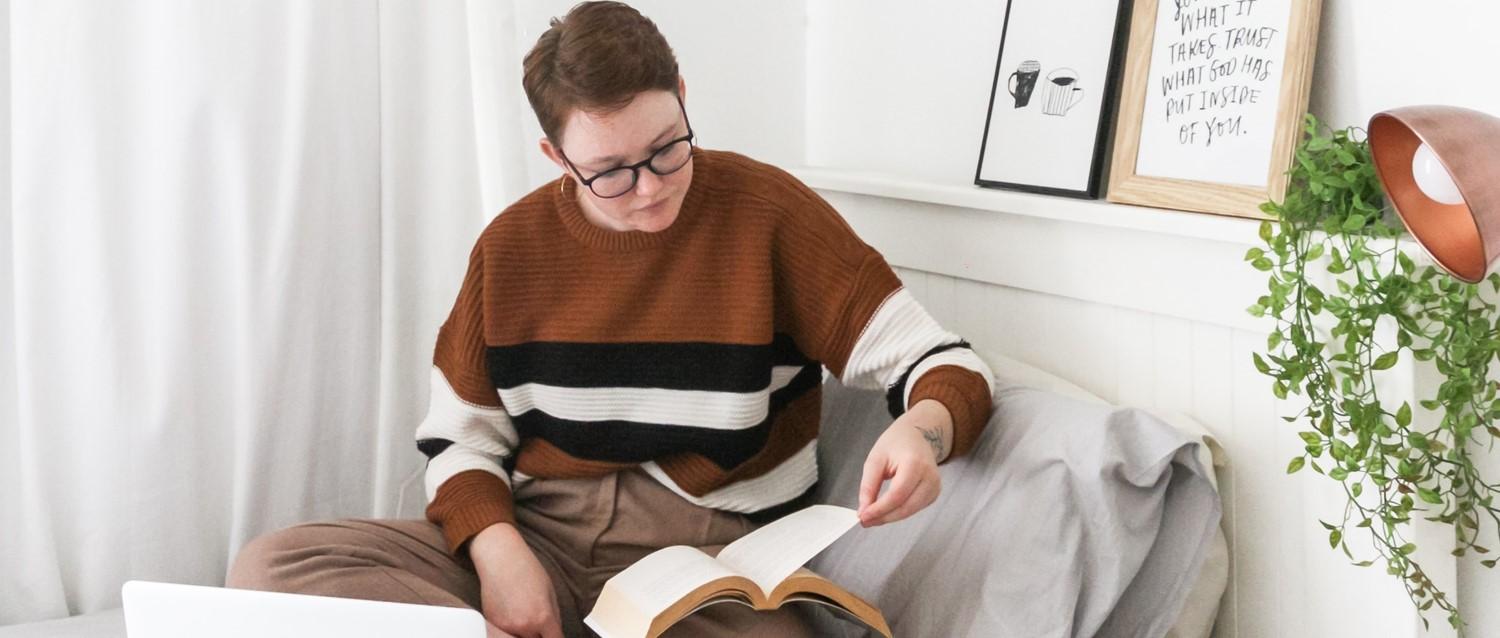
How to sleep-proof your relationship
Peer reviewed by Dr Sarah Jarvis MBE, FRCGPAuthored by Danny ChadburnOriginally published 27 Sept 2017
- DownloadDownload
- Share
If you suffer from insomnia, this can have a negative effect on many other areas of your life – from work to your relationships.
In this article:
‘Good sleep delivers good daytime wellbeing, affecting our energy, concentration, mood and personal functioning. Without good sleep our lives and our relationships can become compromised,’ says Professor Colin Espie, clinical and scientific director for sleep improvement programme Sleepio.
Continue reading below
What effect does insomnia have on relationships?
A study by the University of California in 2014 found poor sleep quality was linked to greater marital conflict and poorer relationship satisfaction. ‘The next day you may be more likely to argue with your partner, are less likely to make up, and may lack empathy, so it makes it harder for you to understand their point of view,’ says Dr Neil Stanley from The Sleep Consultancy.
Your partner could even be making your insomnia worse – research shows that 50% of sleep disturbance is caused by our bed partner. Dr Stanley says, ‘Over time, this can turn your feelings from ‘You’ve disturbed my sleep again’ into ‘You’ve ruined my life’!’
It’s also easy to resent your partner for sleeping soundly next to you when you’re struggling with insomnia. If they snore too, that can push your tolerance to the limit; there’s some evidence that couples who struggle with sleep apnoea also have a high divorce rate.
Patient picks for Insomnia

Mental health
Should you keep a dream journal?
Journaling can be seen as a light-hearted activity, and writing in notebooks throughout the day might not be something we give much thought to. However, recording your dreams can offer benefits for your mental health and the quality of your sleep.
by Emily Jane Bashforth

Mental health
Narcolepsy and cataplexy
Narcolepsy is a long-term (chronic) problem that affects your sleep. You feel excessively tired during the daytime but have disturbed night-time sleep. You can also have sleep attacks where you fall asleep during the day without any warning. Many people with narcolepsy also have cataplexy. This is a condition in which you have sudden loss of control over some of your muscles. Narcolepsy is usually diagnosed by monitoring you while you sleep in a special sleep laboratory. There is no cure for narcolepsy. However, various treatments are available that can help to control your symptoms. These include stimulant medicines to stop you feeling so sleepy.
by Dr Caroline Wiggins, MRCGP
What can I do to protect my relationship?
You need to prioritise your personal sleep. ‘Sleep is the most selfish thing you can do, but putting your sleep first means your relationship will improve,’ says Dr Stanley. ‘Hold off on calling the marriage counsellor – in many cases, a good night’s sleep means a good relationship.’
Expert tips to sleep-proof your relationship:
Get separate beds – we have a romantic idea that we should share a bed, but this is a modern concept. Before the Industrial Revolution couples slept apart but were forced into the same bed due to a lack of living space.
Invest in a bigger bed – if you can’t do separate bedrooms, a bigger bed could help; a standard double is now 4ft 6in, but a single bed is 2ft 6in. This means you have nine inches less sleeping space than a child.
Go to bed at separate times – rather than going to bed together, go when you want to go to sleep. This will stop you lying in bed next to your partner, getting frustrated that you can’t nod off.
Have a grown-up discussion about sleep – you talk about everything else with your partner, and sleep is just as important. Set out how much sleep you would both like and how you can help each other achieve that. They may need to be more understanding for a while, until you beat your insomnia.
Don’t panic about intimacy – sleeping in separate beds doesn’t mean you won’t have sex. You can still be intimate with your partner and then retire to your own beds.
Create a sanctuary – your bedroom should just be for sex and sleeping. Clear out any clutter, such as clothes, kids’ toys or paperwork. There should be nothing in your bedroom that is not related to falling or staying asleep.
Don’t watch TV in bed – apart from the light disturbing your sleep, you should avoid activities that stimulate your brain before bed. Watching TV is also a ‘daytime’ activity, which is not conducive to good sleep.
Article history
The information on this page is peer reviewed by qualified clinicians.
27 Sept 2017 | Originally published
Authored by:
Danny Chadburn
Peer reviewed by
Dr Sarah Jarvis MBE, FRCGP

Ask, share, connect.
Browse discussions, ask questions, and share experiences across hundreds of health topics.

Feeling unwell?
Assess your symptoms online for free